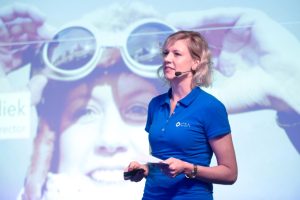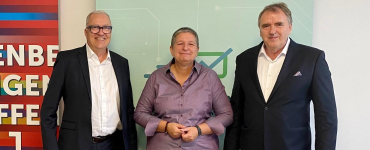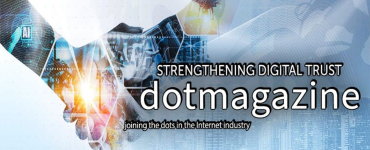Self-regulation is the key to greater quality and trust in the email ecosystem – Julia Janssen-Holldiek, Director of the CSA Certified Senders Alliance (CSA), firmly believes in this principle. In an interview, she talks about the 20 years of CSA, the future of email, and the significance of the CSA Email Summit as a highlight of the industry.
Julia, why do we need the CSA?
Email is a decentralised system based on open standards. Our goal is to improve the quality of commercial emails so that newsletters, invoices and order confirmations reach recipients, while at the same time protecting them from phishing and spam. The CSA develops and establishes quality standards for commercial emailing and thus actively contributes to protecting users and strengthening the email communication channel. We see ourselves as a link between senders and mailbox providers and translate requirements and practical relevance for both sides.
How do you specifically manage to increase the quality of email?
We develop legal, technical and reputational standards, known as CSA criteria, that enable secure and trustworthy email communication. They are regularly updated in a practical manner in order to meet current market requirements. Unlike many institutions that also seek to disseminate certain standards, at the CSA we actively establish them in the market – by certifying senders and technically placing them on an IP list used by well-known mailbox providers and spam filter vendors. This certification process incentivises senders to comply with the standards, resulting in advantages such as improved delivery. Additionally, senders gain insight into the quality of their delivery data, which can protect them from future reputation problems.
Where is email heading and how will it develop in the future?
Email remains one of the most important mediums and is indispensable, especially in B2C communication – in other words, when companies communicate with consumers via newsletters or transactional emails. Email will certainly continue to be used for personal communication in the future, but many people are turning to instant messaging for this. However, the challenge remains to maintain and build trust in email. That’s why the motto of this year’s Email Summit is “Trust Fuels the Future”. It is up to us, or more precisely the entire email ecosystem, to define and establish the essential components of this trust.
Speaking of the CSA Email Summit, there’s something to celebrate this year, right?
Yes, we are celebrating 40 years of email in Germany and 20 years of the CSA with the CSA Email Summit in Cologne in April. It’s also the 10th Email Summit. We are very proud to bring the best minds in the global email industry to Cologne. The community around email is very committed and puts its heart and soul into it. Many live for the medium of email and exchange ideas on stage and through networking. The summit offers a unique opportunity to gain different perspectives and break out of your own silo. In this way, technicians can better understand the needs of marketers and vice versa. Together with an expert audience, we will define what the email of the future needs to look like in order to strengthen the communication channel as a whole.
Why do you think self-regulation is the key to achieving higher quality?
Technologies and new standards can change rapidly. Legal regulations would be far too slow in the email sector. As an industry, we have to take matters into our own hands. If we can define quality standards and get them adopted, everyone will ultimately benefit: the recipients, who will have less phishing and spam to worry about, the senders, whose emails are successfully delivered, and the providers who can rely on the emails they deliver being desired and not a threat. Investing in email quality is worthwhile both financially and ideally for everyone involved.
You’ve been at CSA for 10 years now, what motivates you every day?
The job is just as dynamic as the technologies on which the Internet and email are based. Every day, there are new things to discover and new ways to improve the quality of email – for example, when a certified sender discusses their initial ideas for a new RFC with us or when a new spammer tactic is identified. By helping to shape the framework conditions at the CSA, the end result is that consumers are protected from phishing and spam. That fascinates me. I also really appreciate the fact that the framework conditions are right: We have open-minded colleagues and a great working atmosphere. My interdisciplinary team allows me to immerse myself in other specialisms on a rotating basis. This inspires me, and no two days are the same.
Julia, thank you very much for the interview!
Download the paper “Quality and Trust in the Email Ecosystem Through Self-Regulation”.
Find out more about the CSA Email Summit – registration closes on 10 April.




